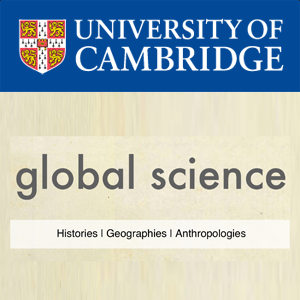Global Science - 29 April 2014 - The Needham Question: An Anthropological Answer
Duration: 35 mins 8 secs
Share this media item:
Embed this media item:
Embed this media item:
About this item

| Description: |
Diederick Raven (Utrecht University)
Respondent: Simon Schaffer (University of Cambridge) Abstract The Needham question, why the Scientific Revolution didn’t take place in China, is without a doubt the grandest of all questions to be around in the challenging field of comparative historical sociology. In this presentation I will put forward an anthropological perspective on it. I will first of all deal briefly with the logic of a negative question – something not happening – and suggest that the best we do with it is ignore it. That doesn’t imply that the Needham Problematik – what explains the different why of how the knowledge regimes in China, Islam and Europe developed over time – should be thrown as well but merely we need a new why of formulating it. My formulation is in terms of why there is this marked difference in regina scientiarium in China (history), Islam (figh, jurisprudence) and Europe (theology) and why only Europe changed its queen science – from theology to mathematical physics. I will sketch the rough outline of my answer in terms of the marked differences in what three civilisations involved understand by knowledge, that is to say I will answer the Needham question in a classical anthropological fashion by detailing the differences between 智, Zhi, ‘Ilm, علم and ἐπιστήμη. All three notions are rendered as knowledge into English but what is meant by it differs greatly. Any answer to a Needham kind of question should take this difference into account. Based on this framework I will argue that the roots of science are Christian – the short answer is that the Greek assumption built into to notion of ἐπιστήμη aren’t compatible with key Christian assumption such as the creation of the world by God. |
|---|
| Created: | 2014-05-09 10:00 |
|---|---|
| Collection: | Global Science |
| Publisher: | University of Cambridge |
| Copyright: | Glenn Jobson |
| Language: | eng (English) |
| Keywords: | CRASSH; Global Science; |
| Abstract: | Diederick Raven (Utrecht University)
Respondent: Simon Schaffer (University of Cambridge) Abstract The Needham question, why the Scientific Revolution didn’t take place in China, is without a doubt the grandest of all questions to be around in the challenging field of comparative historical sociology. In this presentation I will put forward an anthropological perspective on it. I will first of all deal briefly with the logic of a negative question – something not happening – and suggest that the best we do with it is ignore it. That doesn’t imply that the Needham Problematik – what explains the different why of how the knowledge regimes in China, Islam and Europe developed over time – should be thrown as well but merely we need a new why of formulating it. My formulation is in terms of why there is this marked difference in regina scientiarium in China (history), Islam (figh, jurisprudence) and Europe (theology) and why only Europe changed its queen science – from theology to mathematical physics. I will sketch the rough outline of my answer in terms of the marked differences in what three civilisations involved understand by knowledge, that is to say I will answer the Needham question in a classical anthropological fashion by detailing the differences between 智, Zhi, ‘Ilm, علم and ἐπιστήμη. All three notions are rendered as knowledge into English but what is meant by it differs greatly. Any answer to a Needham kind of question should take this difference into account. Based on this framework I will argue that the roots of science are Christian – the short answer is that the Greek assumption built into to notion of ἐπιστήμη aren’t compatible with key Christian assumption such as the creation of the world by God. |
|---|---|

